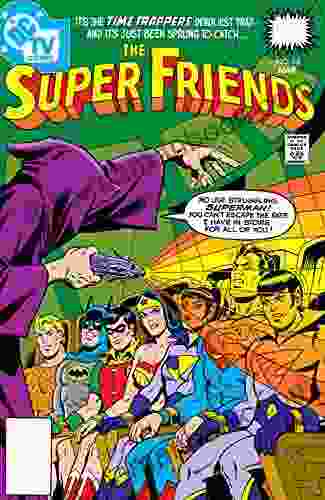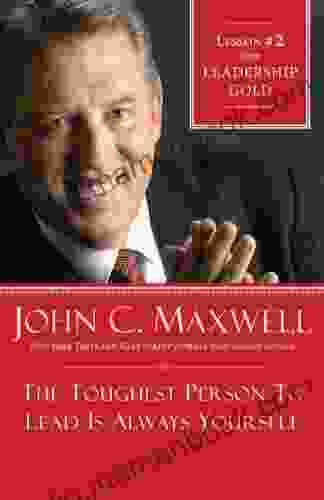Capital and Ideology: A Long Tail SEO Article by Thomas Piketty

In his book Capital and Ideology, Thomas Piketty argues that the distribution of wealth is not simply a matter of economics, but also of ideology. He shows how the wealthy have used their power to shape the rules of the game in their favor, and how this has led to a widening gap between the rich and the poor.
Piketty's book is a major contribution to the debate about inequality. It is a work of rigorous scholarship that is also accessible to a general audience. Piketty's writing is clear and concise, and he uses a wealth of data to support his arguments.
4.7 out of 5
| Language | : | English |
| File size | : | 76987 KB |
| Text-to-Speech | : | Enabled |
| Screen Reader | : | Supported |
| Enhanced typesetting | : | Enabled |
| X-Ray | : | Enabled |
| Word Wise | : | Enabled |
| Print length | : | 1093 pages |
Capital and Ideology is divided into three parts. The first part provides a historical overview of the distribution of wealth. Piketty shows how the gap between the rich and the poor has widened over the past several decades, and he argues that this trend is likely to continue unless we take steps to address it.
The second part of the book examines the role of ideology in shaping the distribution of wealth. Piketty argues that the wealthy have used their power to shape the rules of the game in their favor, and that this has led to a widening gap between the rich and the poor.
The third part of the book offers a series of proposals for how we can address the problem of inequality. Piketty argues that we need to take steps to reduce the concentration of wealth, and that we need to invest in education and other public goods.
Piketty's Analysis
Piketty's analysis of the distribution of wealth is based on a vast amount of data. He has compiled a database of wealth inequality in 20 countries over the past 200 years. This data shows that the gap between the rich and the poor has widened in all of these countries over the past several decades.
Piketty argues that there are two main reasons for the widening gap between the rich and the poor. The first is the increasing concentration of wealth at the top. The second is the decline of the labor share of income.
The concentration of wealth at the top is due to a number of factors, including rising incomes for the top 1%, the increasing value of assets such as stocks and real estate, and the decline of taxes on wealth.
The decline of the labor share of income is due to a number of factors, including the globalization of production, the rise of automation, and the decline of unions.
Piketty argues that these two trends are likely to continue unless we take steps to address them. He warns that if we do not take action, the gap between the rich and the poor will continue to widen, and this will lead to social unrest.
Piketty's Proposals
Piketty offers a number of proposals for how we can address the problem of inequality. These include:
- Increasing taxes on wealth
- Investing in education and other public goods
- Raising the minimum wage
- Strengthening unions
- Promoting worker ownership of capital
Piketty argues that these proposals are necessary to reduce the gap between the rich and the poor and to create a more just and equitable society.
Capital and Ideology is a major contribution to the debate about inequality. It is a work of rigorous scholarship that is also accessible to a general audience. Piketty's writing is clear and concise, and he uses a wealth of data to support his arguments.
Piketty's book is a must-read for anyone who wants to understand the problem of inequality and its implications for our society.
4.7 out of 5
| Language | : | English |
| File size | : | 76987 KB |
| Text-to-Speech | : | Enabled |
| Screen Reader | : | Supported |
| Enhanced typesetting | : | Enabled |
| X-Ray | : | Enabled |
| Word Wise | : | Enabled |
| Print length | : | 1093 pages |
Do you want to contribute by writing guest posts on this blog?
Please contact us and send us a resume of previous articles that you have written.
 Top Book
Top Book Novel
Novel Fiction
Fiction Nonfiction
Nonfiction Literature
Literature Paperback
Paperback Hardcover
Hardcover E-book
E-book Audiobook
Audiobook Bestseller
Bestseller Classic
Classic Mystery
Mystery Thriller
Thriller Romance
Romance Fantasy
Fantasy Science Fiction
Science Fiction Biography
Biography Memoir
Memoir Autobiography
Autobiography Poetry
Poetry Drama
Drama Historical Fiction
Historical Fiction Self-help
Self-help Young Adult
Young Adult Childrens Books
Childrens Books Graphic Novel
Graphic Novel Anthology
Anthology Series
Series Encyclopedia
Encyclopedia Reference
Reference Guidebook
Guidebook Textbook
Textbook Workbook
Workbook Journal
Journal Diary
Diary Manuscript
Manuscript Folio
Folio Pulp Fiction
Pulp Fiction Short Stories
Short Stories Fairy Tales
Fairy Tales Fables
Fables Mythology
Mythology Philosophy
Philosophy Religion
Religion Spirituality
Spirituality Essays
Essays Critique
Critique Commentary
Commentary Glossary
Glossary Bibliography
Bibliography Index
Index Table of Contents
Table of Contents Preface
Preface Introduction
Introduction Foreword
Foreword Afterword
Afterword Appendices
Appendices Annotations
Annotations Footnotes
Footnotes Epilogue
Epilogue Prologue
Prologue John Kaufman
John Kaufman Keanan Brand
Keanan Brand Isis Estrada
Isis Estrada Angela Magara
Angela Magara Laure Conan
Laure Conan Scarlett Mcleod
Scarlett Mcleod Tracey West
Tracey West Steven Towns
Steven Towns Tim Cooper
Tim Cooper Vinayak Venkataraman
Vinayak Venkataraman Ernest J Gaines
Ernest J Gaines Jim1537
Jim1537 Ulf Schiewe
Ulf Schiewe Charles Bukowski
Charles Bukowski Emily Larkins
Emily Larkins Tristan Johnson
Tristan Johnson Paul Begadon
Paul Begadon Andy Maslen
Andy Maslen Jay Posick
Jay Posick Vicki S Napper
Vicki S Napper
Light bulbAdvertise smarter! Our strategic ad space ensures maximum exposure. Reserve your spot today!

 Nathaniel PowellThe Astonishing True Story of Leon Sperling: A Holocaust Survivor's Triumph...
Nathaniel PowellThe Astonishing True Story of Leon Sperling: A Holocaust Survivor's Triumph...
 Randy HayesYevgeny Onegin: A Timeless Tale of Love, Society, and Identity by Alexander...
Randy HayesYevgeny Onegin: A Timeless Tale of Love, Society, and Identity by Alexander...
 Reed MitchellThe Little Mountains of Herefordshire: A Hidden Gem in England's Countryside
Reed MitchellThe Little Mountains of Herefordshire: A Hidden Gem in England's Countryside Joseph HellerFollow ·6k
Joseph HellerFollow ·6k Jeremy MitchellFollow ·12.9k
Jeremy MitchellFollow ·12.9k Thomas PowellFollow ·10.7k
Thomas PowellFollow ·10.7k Garrett PowellFollow ·5.9k
Garrett PowellFollow ·5.9k Dean CoxFollow ·16.6k
Dean CoxFollow ·16.6k Randy HayesFollow ·18.1k
Randy HayesFollow ·18.1k Edison MitchellFollow ·9.1k
Edison MitchellFollow ·9.1k Douglas PowellFollow ·8.3k
Douglas PowellFollow ·8.3k

 Dean Cox
Dean CoxHow to Make Decisions Easily & Effortlessly: The...
The Different Types of Decisions There...

 Gustavo Cox
Gustavo CoxThe End of World War II and the Birth of Baseball's...
The end of...

 Patrick Rothfuss
Patrick RothfussThe Dantes: An 11-Family Saga of Billionaires, Soulmates,...
The Dantes is an epic family saga that follows...

 Dylan Mitchell
Dylan MitchellSuper Friends: The Animated Adventures That Defined a...
In the vibrant landscape of American...

 Jamal Blair
Jamal BlairCollege For Students With Disabilities: We Do Belong
College can be a...
4.7 out of 5
| Language | : | English |
| File size | : | 76987 KB |
| Text-to-Speech | : | Enabled |
| Screen Reader | : | Supported |
| Enhanced typesetting | : | Enabled |
| X-Ray | : | Enabled |
| Word Wise | : | Enabled |
| Print length | : | 1093 pages |








